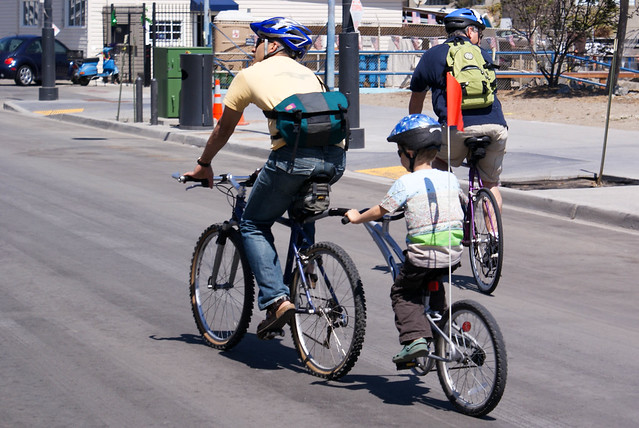
“Everyday Cycling” is an inclusive term that can be used to describe anyone who rides a bike for any reason: for sport, for dropping kids at school, for grocery shopping, commuting to work, for leisurely rides along the river, all can thought of as everyday cyclists. On Wednesday September 21st, cycling enthusiasts, community activists, and planners gathered at the Alpha Soul Café in Hintonburg for the first session of the Next City Café. Breakout groups were tasked with answering three key questions; afterwards each brought their notes back to share with the room.
The goal was to come up with constructive actions we can all do to make cycling better in our city.
Q#1. Why does cycling and cycling infrastructure matter?
A: Building cycling infrastructure creates a better city by; increasing spontaneous stops at local businesses, breaks down class barriers (bicycles cost much less than cars to operate), consuming less precious public space than cars or public transit, reducing the carbon footprint of travel and providing a safer more friendly environment for pedestrians where there are fewer cars and more eyes directly on the street.
Q#2. What does Ottawa need to make cycling better?
It was unanimous that more cycling infrastructure was needed to keep up with the growing intensification of the city, including; more dedicated bike lanes, better signage on bike routes, connecting existing bike routes and advanced traffic signals for cyclists. Cycling centered services also include; clearing snow on bike routes in the winter, fixing potholes and expanding the bike sharing network.
Also discussed was the need for education both for cyclists and drivers of the rules of the road. It was suggested that driver’s education programs and schools should integrate cycling awareness programs into their curriculum –and we need more bike festivals and events to promote cycling education.
Education was also considered a vital part of advocacy efforts to promote safe urban cycling. This includes educating cyclists to talk to their councilors and ask for more cycling centered planning in Ottawa and increased funding for city departments that deal with cycling. Cycling, it was argued, is a mode of transportation like transit or cars and should be treated as such. This led to a request for tax rebates for cycling just like those that are currently applied to transit passes. Also discussed, was the need for public-private partnerships to provide showers, bike parking and other infrastructure to encourage cycling.
Q#3 What can we do to make cycling in Ottawa better?
Here are some of the answers:
- Etiquette and rules of the road: how we ride is noticed by others, and we can all be cycling ambassadors
- Start a workplace bicycle users’ group to encourage better facilities, share maps and routes and relay news
- Organize a bike rodeo at your school
- Join citizens for safe cycling
- Write to your local councilor
- Buy a bell for your bike
- Be the cyclist you wish others would be when you are driving
- Attend more cycling advocacy events and get more involved with the cycling community
- Talk about your bike a lot!
- Cycle slowly in style
- Contact your local councilor, cc Colin Simpson, to let them know that we need more bike lanes plowed in the winter
- Paint a bike lane in your neighbourhood
Thank you to the panelists Skyler Playford– bike share project coordinator at Causeway Work Centre; Ian Fraser – Wellington West BIA Cycling Committee; Kathleen Wilker – Hintonburg Cycling Champions organizer; Colin Simpson – Transportation planner at the City of Ottawa.
Thank you also to Kitchissippi Councillor Kathleen Hobbs, event sponsor John Read of Beament Green Lawyers and the Alpha Soul Café.
Please join us on October 19th 7pm at the Alpha Soul Café to talk about Planning for a Food Secure Ottawa. And be sure to tweet hash tag #nextcity.
photo by sfsbikes

One comment
Thanks Allegra, a fine event.
Just wanted to mention the unexpected new bike lane popping up on Scott street on friday October 21.
It’s conversations like the one you facilitated that result in real change (just usually not that fast).
Cheers
Alex